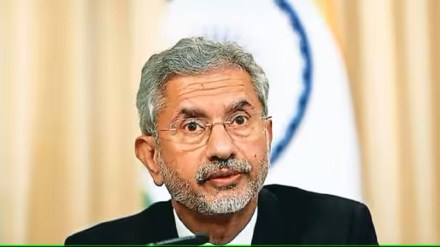In a move towards strengthening regional connectivity and bolstering national security, External Affairs Minister, S Jaishankar, highlighted the nation’s commitment to enhancing ties with neighboring countries. Notably, India’s engagement with Bangladesh, Nepal, and Bhutan has been a focal point, with infrastructural initiatives taking center stage.
One of the major advancements in this endeavor is India’s discussions with Bhutan regarding the establishment of a rail link between the two nations, specifically connecting Assam to Bhutan. This railway project holds the potential to not only deepen the economic bond but also open the doors for increased tourism flow.
On Monday, in a breakfast interaction with a group of journalists the minister affirmed that this step towards connectivity echoes India’s dedication to strengthening relations beyond borders.
Further underlining India’s commitment to strengthening ties, he highlighted the advancements in the Raxaul-Kathmandu cross-border railway project. This significant venture, currently in its final location survey stage, aims to establish a direct train link between Kathmandu and India. Such developments are poised to redefine regional mobility and trade dynamics, contributing to the growth of both nations.
However, the connectivity aspirations extend beyond the subcontinent, with India’s engagement with Myanmar facing unique challenges due to the prevailing security situation. The minister acknowledged the complexities associated with completing the Trilateral Highway, emphasizing the need for cooperation and engagement with Myanmar authorities. The project’s fruition holds the promise of enhanced trade and access to strategic ports.
Reflecting on the evolution of India’s border infrastructure, Jaishankar praised the Modi government’s unwavering commitment to security and progress. Over the last nine years, the government has made significant strides in enhancing border infrastructure along the Line of Actual Control with China. The minister underscored that the quality of infrastructure directly influences deployment effectiveness, a notion that resonates deeply with the nation’s security strategy.
Jaishankar pointed out that the budget allocation for border infrastructure has quadrupled since 2008, a testament to the government’s resolute dedication. The collaborative efforts of various ministries and departments, including defense, roads, home, and external affairs, highlight the synchronized approach toward completing vital projects. This synergy has not only expedited armed forces’ deployment but also elevated the living conditions in border areas through initiatives like the Vibrant Villages program.
It is worth noting that India’s commitment to strengthening infrastructure transcends its own borders. With an eye on neighboring countries like Nepal, Bhutan, Bangladesh, and Sri Lanka, India is paving the way for enhanced regional cooperation. Yet, challenges persist, especially in Myanmar, where the security situation has hindered project implementation.
India’s proactive approach to bolstering connectivity and border infrastructure underscores its dedication to regional growth and security. By fostering stronger bonds with neighbouring nations, India is not only facilitating trade and mobility but also fortifying its stance in the realm of national defense. Through collaborative efforts, comprehensive infrastructure development, and unwavering commitment, India is carving a path towards a more prosperous and secure future for itself and its neighbours.
